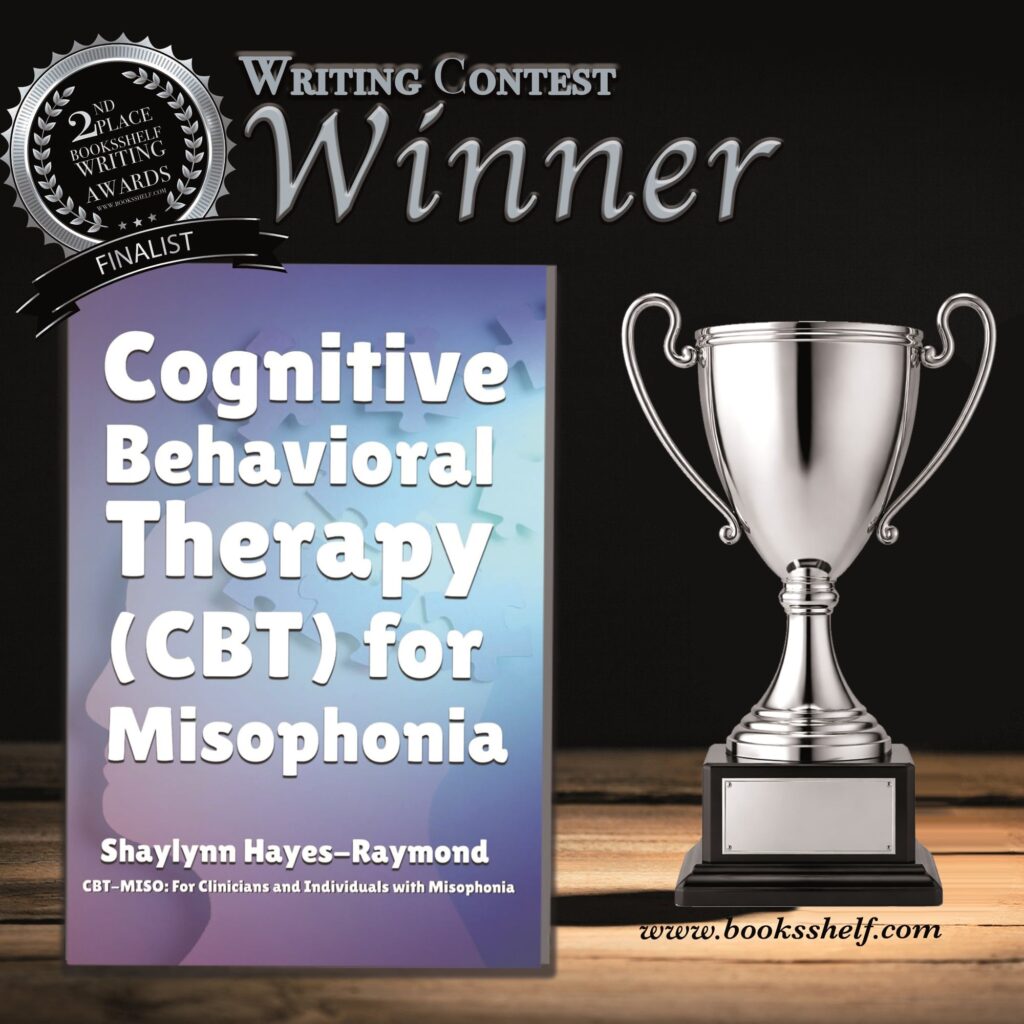
Misophonia is a disorder in which certain sounds trigger emotional and or physical responses that others may consider irrational. Currently, it is mainly self-diagnosed because finding a health care practitioner that will diagnose or treat Misophonia is a huge challenge. Finding a mental health care practitioner to diagnose and treat is impossible. Why is that? Misophonia is not determined a psychiatric disorder, so a diagnosis of Misophonia would not be able to be provided by a behavioral or mental health practitioner. There is a manual called the DSM-V, The Diagnostic Statistical Manual of Mental Disorders published by the American Psychiatric Association which lists all classifications of mental disorders. The DSM-V guides behavioral and mental health practitioners in diagnosing those mental health disorders. Misophonia cannot be found in the DSM-V.
There isn’t any medication or universal established treatment at this time, yet there is hope, ongoing research, support and coping mechanisms you can learn about and utilize. Psychotherapists provide treatment for behavioral and mental health issues. They can be a great resource for support and coping skills to the stress response that you experience after a trigger. The stress response is fight or flight, a natural response and healthy when we need it when we are faced with an actual threat of harm. The stress response helps us fight our way through a dangerous situation or run from it. A therapist can range from Psychologists, Licensed Clinical Social Workers, Licensed Professional Counselors, Licensed Marriage and Family Therapists and more.
Since Misophonia is not in the DSM-V, finding a therapist that understands can be puzzling. It is a great opportunity for you to broaden awareness and education to a therapist about your challenges living with Misophonia. As a Licensed Clinical Social Worker working in a behavioral health setting, I learn from my patients every day. I believe in learning from them and working collaboratively on their goals in therapy makes me a better therapist and overall a better person. So turning to a therapist can be beneficial and one should not shy away. I have been asked by others about whether a health care or behavioral health care provider, who does not live with an issue, would understand. Everyone can learn about a specific topic or issue. Would you not go to a cancer doctor if they never had cancer? We can teach each others about Misophonia, and many therapists are open to learning and understanding. However, there are therapists out there that have an understanding of Misophonia. I am one of them.
I have had Misophonia ever since I was a young girl. I did not know what it was until just recently working with my audiologist for new hearing aids for both ears. I had just replaced the ones I have had for the last 10 years. I have always been hearing impaired. I began talking about experiences that were puzzling and my audiologist asked more detailed questions leading us to Misophonia. I cope very well in many environments. Having Misophonia, I believe, helps me truly understand the confusion and distress that it brings. There are many noises I truly enjoy and some that I do not. There are just a few that trigger my stress response and that can be hard to tolerate at times.
I have worked on some behavior experiments of various ways of coping and recovery response time to the stress response has been positive. There are times that ultimately I have been through my coping skills box (figuratively) and I have to take a break and remove myself when I can. I have noticed some trigger noises throughout my experiences with patients and have been able to cope well. I can cope well because, in that timeframe of our sessions, they come first. A lot of times we often put others before ourselves, and that tends to happen more so when someone works in a helping profession. In between sessions, when I am not focusing on someone else, I practice many small things that bring me joy and peace to distress. When I am triggered by the noises during those times, it does take some extra care on my part to get through them.
What kind of coping is there that a therapist can help with?
Keeping a journal or diary can be a good place to start. This can show patterns and triggers more closely. The diary can include the time of day and what was happening around you or what you were doing at the time. How did you feel? Sad, angry, joyful, shameful, fearful? What was your body feeling? Did you shake, tense up, have trouble breathing? What did you do to cope and did it help (can be where behavior experiments take place)? Were there others involved? Were they helpful or contributing to the stress? If the people around you are stressed, you will likely feel that energy, and the situation could worsen.
Promote and educate on healthy self-care: care of your physical health, nutrition, exercise, healthy sleep practices and activities daily that brings you a sense of accomplishment and joy. These practices are especially important if you are struggling with depression and anxiety. Many people develop depression from isolating themselves and avoiding the situations that can cause a trigger; they may also develop social anxiety from having persistent worries about managing Misophonia around others, even their family or any other social setting.
Cognitive Behavioral Therapy (CBT) is a therapy model that many therapists use which is an evidence-based treatment for depression and anxiety and many other mental health challenges. CBT helps you become more aware of inaccurate or unhealthy thoughts (the “cognitive”) so you can see challenging situations more clearly and respond (the “behavioral”) to them in a more constructive way. Thoughts can be very random and people often will panic from thoughts, worrying constantly that they are going to act out on them. Thoughts and feelings are different and we chose whether to act on them or not. Some thoughts are not healthy. You may notice some negative appraisals when your stress response is activated from a trigger. These can be inaccurate due to our perceptions of the situation. Just a few types of unhealthy thought patterns are catastrophizing, mental filter, and overgeneralizing. Catastrophizing is where people think of numerous worst- case scenarios in a situation and then treat it is if those scenarios were inevitably going to happen. Mental filter is where a person is only thinking of the negatives surrounding something and will not think of the positives. Overgeneralizing is a thinking pattern of taking a past or present situation that is usually negative to be all occurring for future situations; “everyone” or “you never, I always” are common in overgeneralizing thoughts. These thoughts and many other unhealthy styles of thought influence how we feel and behave. Therapy can help someone be more aware and challenge these thoughts. Investigate the facts and look at other ways to see the situation.
Promote stress reduction and self-regulation techniques, including: stress regulation and calming methods to help people prepare themselves ahead of time to manage the stress response and minimize the intensity; calming methods like deep regulated breathing and scanning your body for tension and relaxing the muscles; progressive muscle relaxation where you tense the muscles purposely and relax them.
There are many behavior experiments or planned activities for coping that you and a therapist can plan to use. Technology, such as smartphone apps, helps with anxiety, stress, depression, etc. Use earphones and white noise machines. Take breaks, be self-compassionate and forgiving. Hold yourself accountable to change a behavior if it is destructive. Remove yourself and take a walk, watch nature, play your favorite music, take a bubble bath, lean on your support system, hug yourself, make a gratitude list of things that you are grateful for, make a list and keep it with you that includes reminders to practice body scans, progressive muscle relaxation, supportive and soothing self-talk statements and affirmations, deep breathing, and acronyms to remind you to calm down such as STRIP (stop, take a breath, relax all your muscles, imagine consequences if you were to act negatively, and proceed). Learn about your Misophonia or other health-related issues. Ultimately accept and love yourself.
You can find Stacy on the Misophonia Provider Network.







